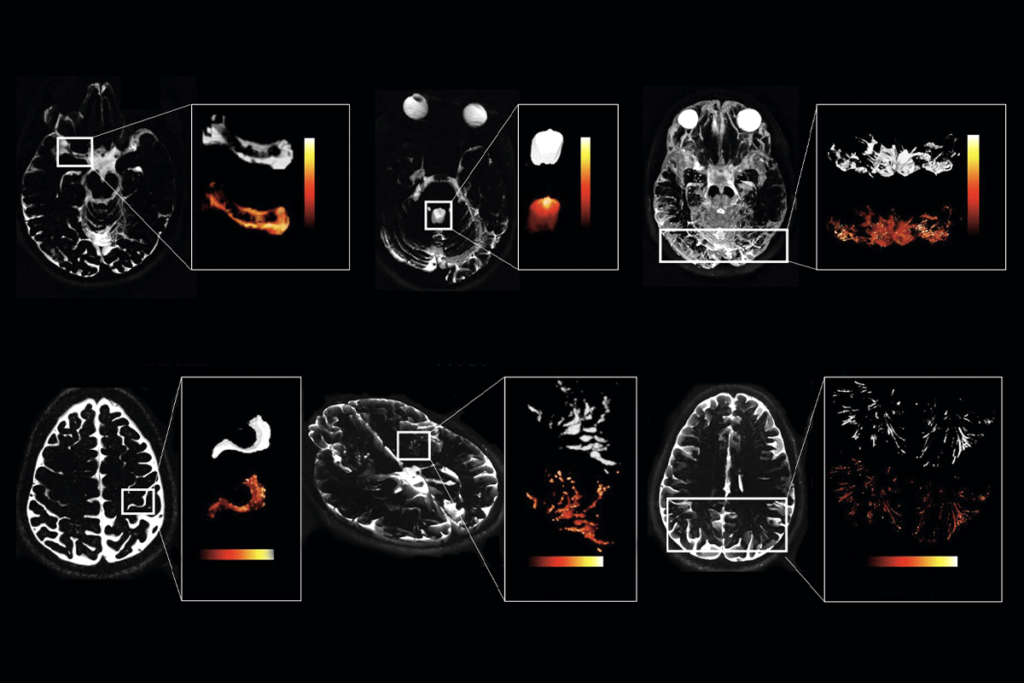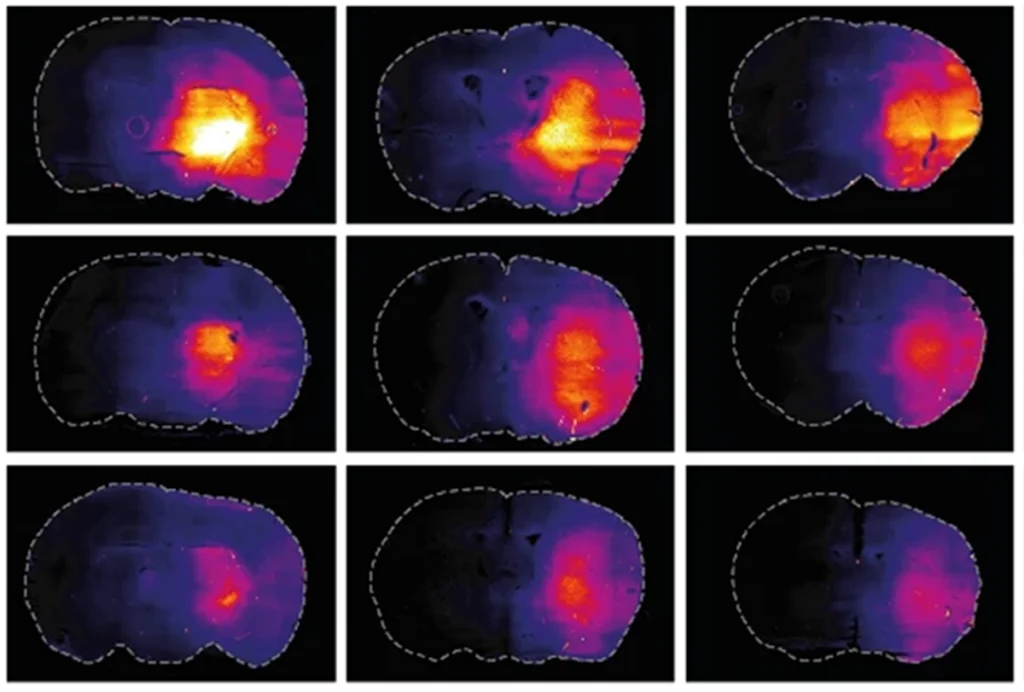Glymphatic system
Recent articles
Snoozing dragons stir up ancient evidence of sleep’s dual nature
Deep-sleep cycling between brain waves of higher and lower amplitude dates far back on the evolutionary tree, according to a new comparative study of mammals and reptiles.
Snoozing dragons stir up ancient evidence of sleep’s dual nature
Deep-sleep cycling between brain waves of higher and lower amplitude dates far back on the evolutionary tree, according to a new comparative study of mammals and reptiles.
Noninvasive method lifts curtain on cerebrospinal-fluid dance in human brain
Cerebrospinal fluid shows brain-region-specific dynamics, a new high-resolution MRI approach reveals.

Noninvasive method lifts curtain on cerebrospinal-fluid dance in human brain
Cerebrospinal fluid shows brain-region-specific dynamics, a new high-resolution MRI approach reveals.
Fleeting sleep interruptions may help brain reset
Brief, seconds-long microarousals during deep sleep “ride on the wave” of locus coeruleus activity in mice and correlate with periods of waste clearing and memory consolidation, new research suggests.

Fleeting sleep interruptions may help brain reset
Brief, seconds-long microarousals during deep sleep “ride on the wave” of locus coeruleus activity in mice and correlate with periods of waste clearing and memory consolidation, new research suggests.
The Transmitter’s favorite features of 2024
Our chosen stories include tales about research misconduct in the lab, a neuroscientist working at the end of the world, and the passing of neuroanatomy’s “great-grandfather,” Harvey Karten.

The Transmitter’s favorite features of 2024
Our chosen stories include tales about research misconduct in the lab, a neuroscientist working at the end of the world, and the passing of neuroanatomy’s “great-grandfather,” Harvey Karten.
New method reignites controversy over brain clearance during sleep
Tracers injected directly into mouse brain tissue instead of the cerebrospinal fluid show that brain clearance slows during sleep and under anesthesia, according to a study published last week—but proponents of the glymphatic system theory take issue with the technique.

New method reignites controversy over brain clearance during sleep
Tracers injected directly into mouse brain tissue instead of the cerebrospinal fluid show that brain clearance slows during sleep and under anesthesia, according to a study published last week—but proponents of the glymphatic system theory take issue with the technique.
Maiken Nedergaard’s power of disruption
The award-winning researcher’s discoveries have changed the way we think about the brain; that’s exactly what her critics dislike.

Maiken Nedergaard’s power of disruption
The award-winning researcher’s discoveries have changed the way we think about the brain; that’s exactly what her critics dislike.
Explore more from The Transmitter
Neuro’s ark: Spying on the secret sensory world of ticks
Carola Städele, a self-proclaimed “tick magnet,” studies the arachnids’ sensory neurobiology—in other words, how these tiny parasites zero in on their next meal.

Neuro’s ark: Spying on the secret sensory world of ticks
Carola Städele, a self-proclaimed “tick magnet,” studies the arachnids’ sensory neurobiology—in other words, how these tiny parasites zero in on their next meal.
Autism in old age, and more
Here is a roundup of autism-related news and research spotted around the web for the week of 2 March.

Autism in old age, and more
Here is a roundup of autism-related news and research spotted around the web for the week of 2 March.
Lack of reviewers threatens robustness of neuroscience literature
Simple math suggests that small groups of scientists can significantly bias peer review.

Lack of reviewers threatens robustness of neuroscience literature
Simple math suggests that small groups of scientists can significantly bias peer review.